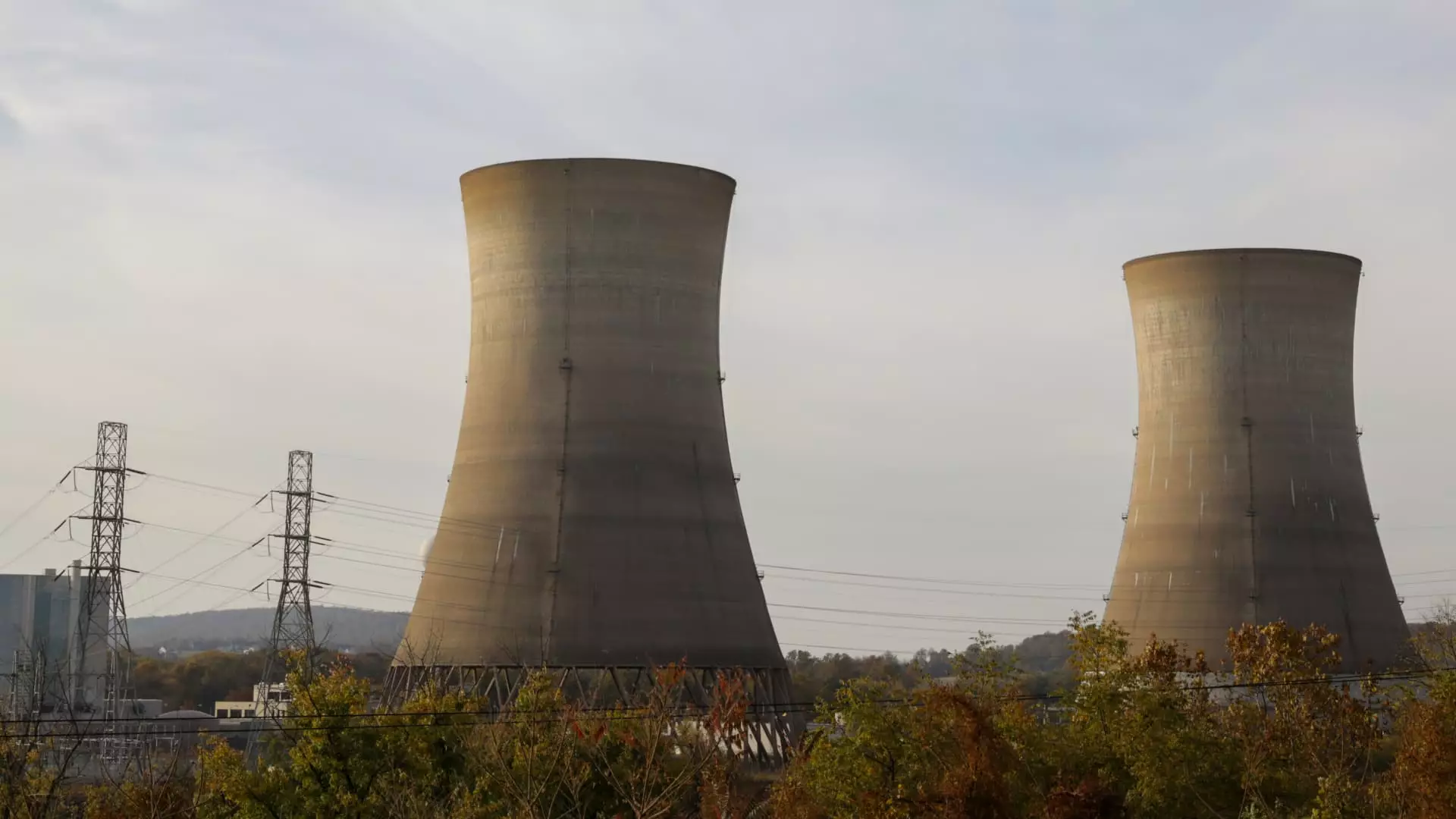In the contemporary energy discourse, uranium increasingly emerges as a beacon of reliability in light of escalating global energy demands. As various industries, most notably technology giants powering artificial intelligence, expand at an unprecedented pace, the call for steady and efficient energy sources intensifies. John Ciampaglia, CEO of Sprott Asset Management, has voiced his commitment to this trajectory, suggesting a seismic shift toward uranium utilization. Underpinning this urgent reevaluation of energy sources is a growing awareness among policy makers and investors alike about the diminished role of fossil fuels, particularly in the context of climate change.
The geopolitical ramifications of energy supply disruptions have also shaped perspectives on uranium. With recent crises, such as the energy shortages in Europe tied to geopolitical tensions, energy security is no longer an abstract concern but a pressing reality. Ciampaglia’s emphasis on nuclear power’s zero-emissions capability and its substantial energy density highlights the potential of uranium to meet both economic and environmental needs, recognizing that traditional energy avenues may falter in times of instability.
Nuclear Power: A Game-Changer for Economic Resilience
The financial landscape surrounding uranium reflects its potential as the antidote to critical energy challenges. The impressive jumps in the Sprott Physical Uranium Trust and the Sprott Uranium Miners ETF—rising by 22% and 38% respectively—underscore the growing investor confidence in the sustainability of nuclear energy investments. What’s compelling is the underlying belief that nuclear power can replenish the energy supply chain effectively while significantly mitigating the carbon footprint.
Looking to the future, this lucrative market does not appear to be a fleeting trend. Ciampaglia’s assertion that nuclear energy is experiencing a “long-term, secular and durable” shift—a sentiment echoed by VanEck—suggests that economic resilience could become synonymous with nuclear energy’s ascent. As technological innovations burgeon, the nuclear sector is positioned uniquely to adapt and evolve, potentially empowering national economies through job creation and infrastructure development, all while underscoring energy independence.
Government Policy: A Double-Edged Sword
While the potential benefits of rising interest in uranium are abundant, navigating through the intricate layers of regulatory frameworks and political dynamics poses a formidable challenge. VanEck hints at the complexities of constructing new reactors, which can be a slow and arduous process. Regulatory hurdles can deter immediate investment; however, recent political developments signal a tantalizing shift. With measures taken during the Trump administration aimed at bolstering nuclear power—potentially fast-tracking the permitting process—there exists a prospect for substantial progress.
Moreover, the advantage of governmental support cannot be understated. The expectation that federal land management could streamline processes and mitigate local opposition (the NIMBY phenomenon) points to a broader understanding that energy security should supersede local grievances. This pragmatic approach to energy policy could bolster public trust in nuclear initiatives, especially if they yield tangible results benefitting both the economy and the environment.
The Consumer Perspective: Lessons from the Past
What remains vital, however, is the societal narrative surrounding nuclear energy. Historical apprehensions about nuclear power, often stemming from fears of accidents and waste management, must be addressed comprehensively to foster acceptance among the general populace. A focused effort toward education and transparent governance in nuclear matters will be critical in reshaping public sentiment.
Consumers are increasingly aware of the interplay between energy efficiency and sustainability; thus, they are likely to embrace initiatives that emphasize environmental stewardship. The dichotomy between past nuclear incidents and future prospects must be bridged with factual information and demonstrable successes. The promise of low-carbon energy paired with economic benefits provides fertile ground for a favorable narrative that resonates with environmentally-conscious consumers.
The evolving dynamics of the uranium market represent more than just a financial opportunity; they encapsulate a broader narrative that intertwines economic growth, energy security, and a commitment to sustainable practices. As we delve deeper into this new era of energy production, it is essential to embrace the potential of nuclear energy as a crucial part of a balanced and resilient energy future.

